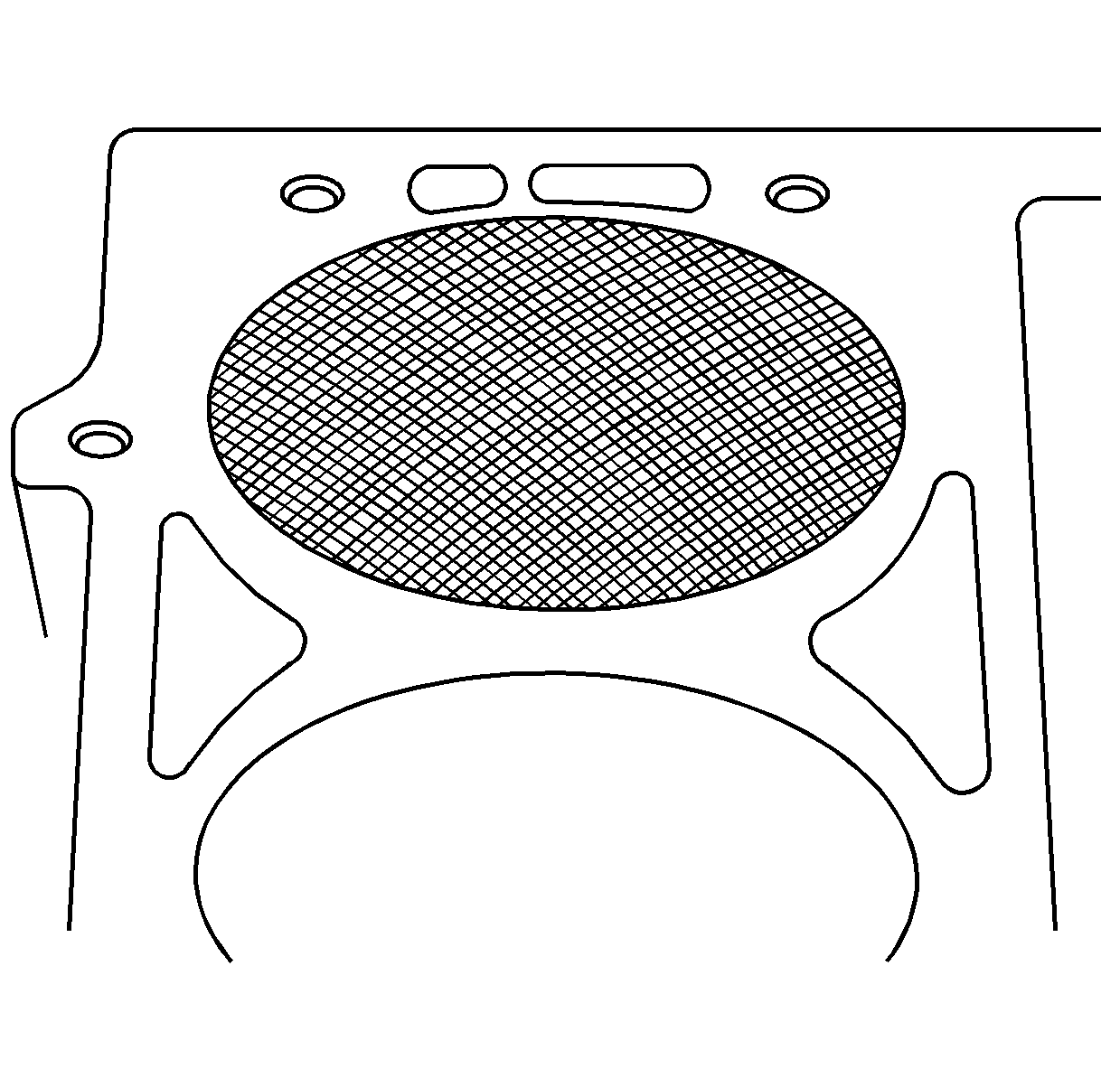Cylinder Boring Procedure
Important: The coating on the piston allows for an interference fit between the
cylinder and the bore. The piston diameter can NOT be measured accurately
because the piston coating is not a consistent thickness. Do NOT measure
the piston diameter.
To select the correct piston for installation, the cylinder bore must
be measured. If the cylinder bore diameter is within service specifications,
install the original piston/connecting rod assembly or a new, standard size
piston/connecting rod assembly. A used piston/connecting rod assembly may
be reinstalled if, after cleaning and inspection, the piston is not damaged.
If the cylinder bore is NOT within specifications, the cylinder must be resized
to accept a new, oversized piston.
Important: If you do not check the cylinder block, the boring bar may be tilted,
this may result in incorrect rebored cylinder wall to crankshaft angle.
- Before you use any type of boring bar, clean the top of the cylinder
block in order to remove any dirt or burrs.
- Carefully follow the instructions furnished by the manufacturer
regarding use of equipment.
- When you rebore cylinders, make sure all crankshaft bearing caps
are in place.
| • | Tighten the bearing caps to the proper torque in order to avoid
distortion of the bores in the final assembly. |
| • | The crankshaft must be removed prior to cylinder boring. |
- When you take the final cut with a boring bar, leave 0.03 mm
(0.001 in) on the diameter for finish honing. This gives the required
position to the cylinder clearance specifications. (Carefully perform
the honing and boring operation in order to maintain the specified clearances
between pistons, rings, and cylinder bores).
Cylinder Honing Procedure

Important: Always remove all bearings and components from engine block before cleaning,
boring or honing the engine block.
- When honing the cylinders, follow the manufacturer's recommendations
for equipment use, cleaning, and lubrication.
| • | Use only clean, sharp stones of the proper grade for the amount
of material you remove. |
| • | Dull, dirty stones cut unevenly and generate excessive heat. |
| • | Do not hone to a final grade with a coarse or medium-grade stone. |
| • | Leave sufficient metal so that all stone marks may be removed
with fine grade stones. |
| • | The re-honed surface finish should be 0.25-0.50 micrometer
(10-20 microinch). |
| • | Perform final honing with a fine-grade stone and hone the cylinder
in a cross hatch pattern at 20 to 30 degrees to obtain the proper clearance. |
- During the honing operation, thoroughly clean the cylinder bore.
| • | Repeatedly check the cylinder bore for fit with the selected oversized
piston. |
| • | All measurements of the piston or the cylinder bore should be
made with the components at normal room temperature. |
- To eliminate taper in the cylinder, when honing, make full strokes
of the hone in the cylinder. Repeatedly check the measurement at the top,
the middle, and the bottom of the bore.
| • | The finish marks should be clean but not sharp. |
| • | The finish marks should be free from embedded particles and torn
or folded metal. |
- When finished, the reconditioned cylinder bores should have less
than or meet the specified out-of-round or taper requirements.
- After final honing and before the piston is checked for fit, clean
the bores with hot water and detergent.
| 5.1. | Scrub the bores with a stiff bristle brush and rinse the bores
thoroughly with hot water. Do not allow any abrasive material to remain in
the cylinder bores. |
| • | Abrasive material may cause premature wear of new piston rings
and cylinder bores. |
| • | Abrasive material will contaminate the engine oil and may cause
premature wear of the bearings. |
| 5.2. | After washing the cylinder bore, dry the bore with a clean shop
towel. |
- Perform final measurements of the cylinder bore.
- Permanently mark the piston for the specific cylinder to which
it has been fitted.
- Apply clean engine oil to each cylinder bore in order to prevent
rusting.

